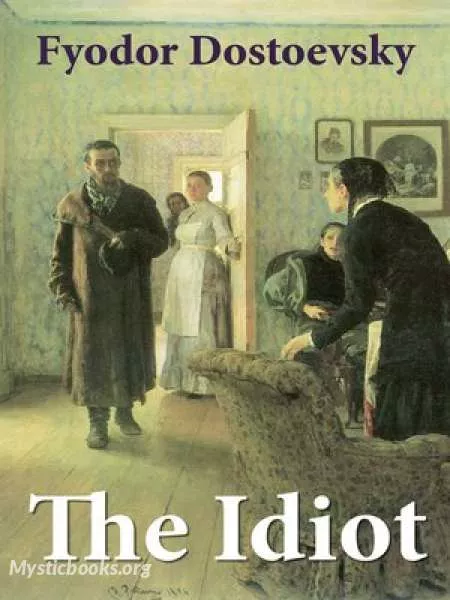
The Idiot, Part 1 and Part 2
'The Idiot, Part 1 and Part 2' Summary
Part 1
Prince Myshkin, a young man in his mid-twenties and a descendant of one of the oldest Russian lines of nobility, is on a train to Saint Petersburg on a cold November morning. He is returning to Russia having spent the past four years in a Swiss clinic for treatment of a severe epileptic condition. On the journey, Myshkin meets a young man of the merchant class, Parfyon Semyonovich Rogozhin, and is struck by his passionate intensity, particularly in relation to a woman—the dazzling society beauty Nastasya Filippovna Barashkova—with whom he is obsessed. Rogozhin has just inherited a very large fortune due to the death of his father, and he intends to use it to pursue the object of his desire. Joining in their conversation is a civil servant named Lebedyev—a man with a profound knowledge of social trivia and gossip. Realizing who Rogozhin is, he firmly attaches himself to him.
The purpose of Myshkin's trip is to make the acquaintance of his distant relative Lizaveta Prokofyevna, and to make inquiries about a matter of business. Lizaveta Prokofyevna is the wife of General Epanchin, a wealthy and respected man in his mid-fifties. When the Prince calls on them he meets Gavril Ardalionovich Ivolgin (Ganya), the General's assistant. The General and his business partner, the aristocrat Totsky, are seeking to arrange a marriage between Ganya and Nastasya Filippovna. Totsky had been the orphaned Nastasya Filippovna's childhood guardian, but he had taken advantage of his position to groom her for his own sexual gratification. As a grown woman, Nastasya Filippovna has developed an incisive and merciless insight into their relationship. Totsky, thinking the marriage might settle her and free him to pursue his desire for marriage with General Epanchin's eldest daughter, has promised 75,000 rubles. Nastasya Filippovna, suspicious of Ganya and aware that his family does not approve of her, has reserved her decision, but has promised to announce it that evening at her birthday soirée. Ganya and the General openly discuss the subject in front of Myshkin. Ganya shows him a photograph of her, and he is particularly struck by the dark beauty of her face.
Myshkin makes the acquaintance of Lizaveta Prokofyevna and her three daughters—Alexandra, Adelaida and Aglaya. They are all very curious about him and not shy about expressing their opinion, particularly Aglaya. He readily engages with them and speaks with remarkable candor on a wide variety of subjects—his illness, his impressions of Switzerland, art, philosophy, love, death, the brevity of life, capital punishment, and donkeys. In response to their request that he speak of the time he was in love, he tells a long anecdote from his time in Switzerland about a downtrodden woman—Marie—whom he befriended, along with a group of children, when she was unjustly ostracized and morally condemned. The Prince ends by describing what he divines about each of their characters from studying their faces and surprises them by saying that Aglaya is almost as beautiful as Nastasya Filippovna.
Part 2
For the next six months, Nastasya Filippovna remains unsettled and is torn between Myshkin and Rogozhin. Myshkin is tormented by her suffering, and Rogozhin is tormented by her love for Myshkin and her disdain for his own claims on her. Returning to Petersburg, the Prince visits Rogozhin's house. Myshkin becomes increasingly horrified at Rogozhin's attitude to her. Rogozhin confesses to beating her in a jealous rage and raises the possibility of cutting her throat. Despite the tension between them, they part as friends, with Rogozhin even making a gesture of concession. But the Prince remains troubled and for the next few hours he wanders the streets, immersed in intense contemplation. He suspects that Rogozhin is watching him and returns to his hotel where Rogozhin—who has been hiding in the stairway—attacks him with a knife. At the same moment, the Prince is struck down by a violent epileptic seizure, and Rogozhin flees in a panic.
Recovering, Myshkin joins Lebedyev (from whom he is renting a dacha) in the summer resort town Pavlovsk. He knows that Nastasya Filippovna is in Pavlovsk and that Lebedyev is aware of her movements and plans. The Epanchins, who are also in Pavlovsk, visit the Prince. They are joined by their friend Yevgeny Pavlovich Radomsky, a handsome and wealthy military officer with a particular interest in Aglaya. Aglaya, however, is more interested in the Prince, and to Myshkin's embarrassment and everyone else's amusement, she recites Pushkin's poem "The Poor Knight" in a reference to his noble efforts to save Nastasya Filippovna.
The Epanchins' visit is rudely interrupted by the arrival of Burdovsky, a young man who claims to be the illegitimate son of Myshkin's late benefactor, Pavlishchev. The inarticulate Burdovsky is supported by a group of insolent young men. These include the consumptive seventeen-year-old Ippolit Terentyev, the nihilist Doktorenko, and Keller, an ex-officer who, with the help of Lebedyev, has written an article vilifying the Prince and Pavlishchev. They demand money from Myshkin as a "just" reimbursement for Pavlishchev's support, but their arrogant bravado is severely dented when Gavril Ardalionovich, who has been researching the matter on Myshkin's behalf, proves conclusively that the claim is false and that Burdovsky has been deceived. The Prince tries to reconcile with the young men and offers financial support anyway. Disgusted, Lizaveta Prokofyevna loses all control and furiously attacks both parties. Ippolit laughs, and Lizaveta Prokofyevna seizes him by the arm, causing him to break into a prolonged fit of coughing. But he suddenly becomes calm, informs them all that he is near death, and politely requests that he be permitted to talk to them for a while. He awkwardly attempts to express his need for their love, eventually bringing both himself and Lizaveta Prokofyevna to the point of tears. But as the Prince and Lizaveta Prokofyevna discuss what to do with the invalid, another transformation occurs and Ippolit, after unleashing a torrent of abuse at the Prince, leaves with the other young men. The Epanchins also leave, both Lizaveta Prokofyevna and Aglaya deeply indignant with the Prince. Only Yevgeny Pavlovich remains in good spirits, and he smiles charmingly as he says good-bye. At that moment, a magnificent carriage pulls up at the dacha, and the ringing voice of Nastasya Filippovna calls out to Yevgeny Pavlovich. In a familiar tone, she tells him not to worry about all the IOUs as Rogozhin has bought them up. The carriage departs, leaving everyone, particularly Yevgeny Pavlovich and the Prince, in a state of shock. Yevgeny Pavlovich claims to know nothing about the debts, and Nastasya Filippovna's motives become a subject of anxious speculation.
Book Details
Language
EnglishOriginal Language
RussianPublished In
1869Authors
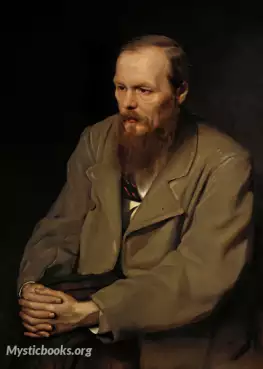
Fyodor Dostoyevsky
Russia
Fyodor Mikhailovich Dostoevsky, sometimes transliterated as Dostoyevsky, was a Russian novelist, philosopher, short story writer, essayist, and journalist. Dostoevsky's literary works explore human ps...
Books by Fyodor DostoyevskyDownload eBooks
Listen/Download Audiobook
- Select Speed
Related books
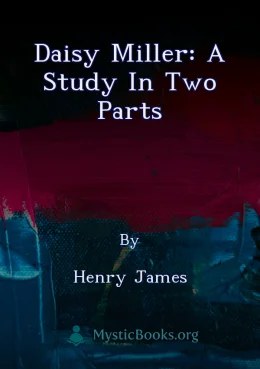
Daisy Miller: A Study in Two Parts by Henry James
Daisy Miller is an 1878 novella by Henry James. It portrays the confused courtship of the eponymous American girl by Winterbourne, a compatriot of her...
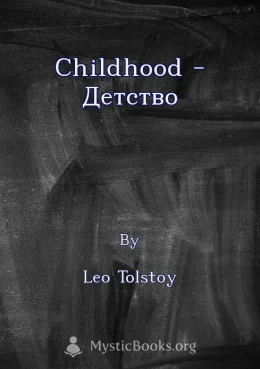
Childhood - Детство by Leo Tolstoy
Childhood (Детство [Detstvo]; 1852) is the first novel in Leo Tolstoy’s autobiographical trilogy. They are the works that launched his writing career....
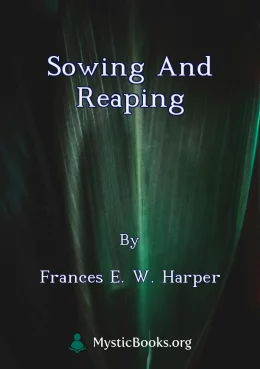
Sowing and Reaping by Frances E. W. Harper
Sowing and Reaping is a didactic novel that explores the destructive effects of alcohol abuse on individuals and families. The novel follows the lives...

Three People by Pansy (Isabella Macdonald Alden)
Three boys in very different home environments start life on the same day: the pampered Pliny Hastings, the solidly brought-up Benny Phillips, and the...
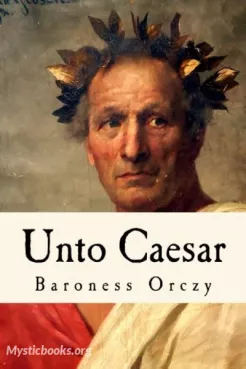
Unto Caesar by Baroness Orczy
In ancient Rome, a young woman must choose between her love for a slave and her duty to her family. Unto Caesar is a historical romance novel by Baro...
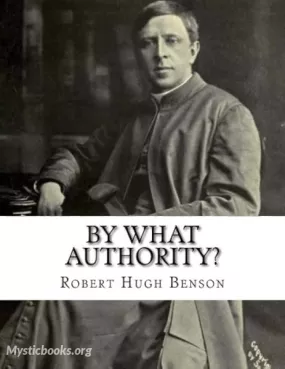
By What Authority? by Robert Hugh Benson
In a world where faith is tested and authority is challenged, one man must find his own path. Robert Hugh Benson's classic novel By What Authority? i...
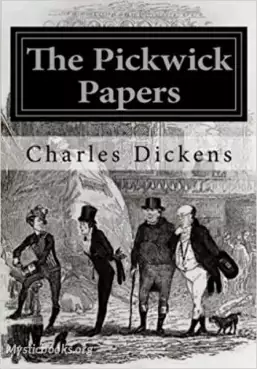
The Pickwick Papers by Charles Dickens
The Posthumous Papers of the Pickwick Club (also known as The Pickwick Papers) was Charles Dickens' first novel. Because of his success with Sketches...

By Way of the Wilderness by Pansy (Isabella Macdonald Alden)
By Way of the Wilderness is a Christian fiction novel by Isabella Alden, writing under the pseudonym "Pansy." It tells the story of a young man named...
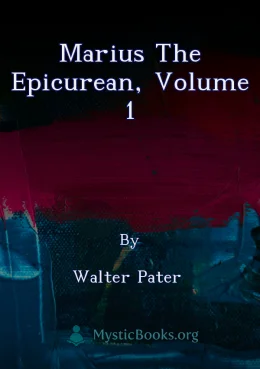
Marius the Epicurean, Volume 1 by Walter Pater
Marius the Epicurean is a philosophical novel written by Walter Pater, published in 1885. In it Pater displays, with fullness and elaboration, his ide...
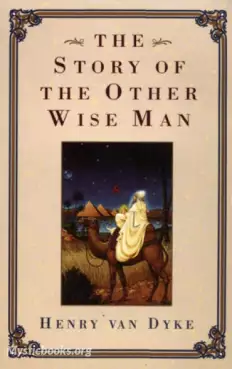
The Story of the Other Wise Man by Henry Van Dyke
You know the story of the Three Wise Men of the East, and how they travelled from far away to offer their gifts at the manger-cradle in Bethlehem. But...
Reviews for The Idiot, Part 1 and Part 2
No reviews posted or approved, yet...